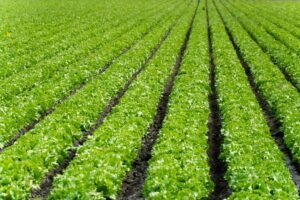Choosing the right farm business insurance policy is one of the most important decisions a California farmer can make. Agriculture is a high-risk industry, and the state’s diverse climate, natural disasters, and regulatory requirements make proper coverage essential. From protecting property and crops to managing liability risks and ensuring compliance with state laws, a well-designed insurance policy safeguards the farm’s financial stability and operational continuity. Understanding how to select the right policy ensures that your farm can thrive, even when unexpected challenges arise.
Understand Your Farm’s Unique Risks
The first step in selecting the right farm business insurance is assessing the specific risks your operation faces. California farms encounter a variety of hazards, including wildfires, droughts, equipment malfunctions, pest infestations, and market fluctuations. Each farm is different, and the insurance policy should reflect the size, type, and scope of your operations. For example, a vineyard in Napa will face different environmental risks than a vegetable farm in the Central Valley. By identifying potential threats, farmers can prioritize the coverage needed to protect their assets and income.
Consider Property and Crop Coverage
Property and crop coverage are fundamental components of any farm insurance policy. Property coverage protects barns, storage facilities, machinery, irrigation systems, and other critical assets against damage or loss caused by fire, storms, theft, or vandalism. Crop insurance, on the other hand, provides protection against financial losses resulting from natural disasters, pests, and diseases. Farmers should carefully evaluate the value of their property and crops to ensure adequate coverage levels. In California, where environmental risks can vary widely across regions, having sufficient property and crop protection is crucial for sustaining operations.
Evaluate Liability Protection
Farms face liability risks that can arise from accidents involving employees, visitors, or customers. Liability insurance covers medical expenses, legal fees, and settlements in the event of accidents or injuries on farm property. Additionally, farms selling products directly to consumers may require product liability coverage to protect against claims related to food safety or product defects. Comprehensive liability protection ensures that farm owners can operate with confidence, minimizing financial exposure while maintaining a positive reputation in the community.
Include Workers’ Compensation for Employees
For farms with employees, workers’ compensation insurance is not optional—it is a legal requirement in California. This coverage provides medical care and compensation for employees injured on the job while shielding farm owners from lawsuits. Even farms with seasonal or part-time staff should consider workers’ compensation coverage, as agricultural work involves inherent physical risks. Ensuring compliance with state regulations protects both the workforce and the farm’s financial well-being.
Explore Additional Coverage Options
Modern farm operations often require additional insurance options to address unique challenges. Equipment breakdown coverage, farm income protection, livestock insurance, and environmental liability coverage are examples of optional policies that can be added to a farm insurance plan. These options allow farmers to customize their insurance to meet the needs of their specific operation, providing peace of mind and mitigating risks that standard policies may not cover.
Work With an Experienced Insurance Provider
Selecting the right policy is not just about choosing coverage—it’s about working with an insurance provider who understands California agriculture. Experienced insurance professionals can help assess risks, recommend appropriate coverage levels, and provide ongoing support as the farm evolves. By partnering with a knowledgeable provider, farmers can ensure that their policies remain up to date and adequately protect their assets against changing risks.
Review and Update Your Policy Regularly
Farm operations are dynamic, and insurance needs can change over time. Expanding acreage, investing in new equipment, diversifying crops, or hiring additional staff may require adjustments to your policy. Regularly reviewing your coverage with your insurance provider ensures that your farm remains fully protected and compliant with state regulations. Proactive policy management reduces gaps in coverage and helps avoid surprises when claims arise.
Conclusion: Secure Your Farm’s Future
Choosing the right farm business insurance policy in California is essential for protecting property, crops, livestock, employees, and financial stability. By understanding your farm’s risks, evaluating property and liability coverage, including workers’ compensation, and exploring additional options, farmers can select a policy tailored to their unique needs. Working with an experienced insurance provider ensures ongoing support and guidance, helping California farmers safeguard their operations now and into the future. For comprehensive farm business insurance solutions, visit Western Insurance







